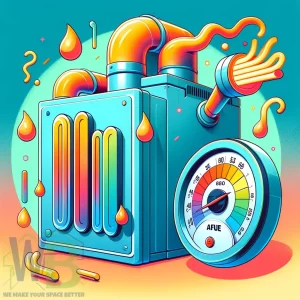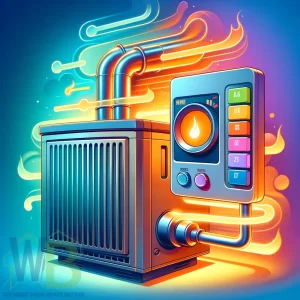Can HVAC Technicians Perform Electrical Work? The answer is: HVAC technicians can perform electrical work as part of their job responsibilities.
They are trained to understand the electrical components of HVAC systems, troubleshoot and repair electrical systems and equipment, test and repair electrical wiring, and install electrical systems as part of an HVAC team.

Quick Summary
| Aspect | Details |
|---|---|
| HVAC Systems | Systems that control temperature, humidity, and air quality in buildings. Use electricity for some parts like thermostats, circuit boards, and motors. |
| HVAC Technician’s Role | Mainly work on mechanical parts of HVAC systems. Know basic electrical safety and wiring related to HVAC. |
| Electrician’s Role | Highly trained in electrical work. Handle complex electrical tasks like wiring buildings, installing new circuits, and upgrading panels. |
| Misconceptions | People often think HVAC technicians can do all electrical work. In reality, their electrical knowledge is limited to HVAC-related tasks. |
| Risks of Unqualified Work | Untrained individuals doing electrical work can cause fires, electric shocks, and damage. It’s unsafe and against building codes. |
| When to Call an Electrician | For adding new appliances, troubleshooting electrical problems, and updating old electrical panels. |
| Safety and Training | HVAC technicians follow safety rules for HVAC electrical parts. Electricians have more extensive training for larger electrical jobs. |
Understanding HVAC and Electrical Systems
HVAC stands for Heating, Ventilation, and Air Conditioning. These systems keep our homes and workplaces comfortable. They control the temperature, humidity, and air quality. HVAC systems have parts that work with electricity. Electrical systems give power to our devices and appliances, including HVAC systems.
HVAC technicians usually work on the parts of these systems that do not involve much electrical work. But sometimes, they do work with electrical parts.
These parts can be things like thermostats, circuit boards, and motors. HVAC technicians know a bit about electricity but not as much as electricians.
Misconceptions About HVAC Technicians’ Electrical Skills
Some people think HVAC technicians are also electricians. This is not true. HVAC technicians learn about electrical safety and some basic wiring. But they do not know as much as electricians. Electricians go to school for a long time to learn much about electricity. They also get special licenses.
HVAC technicians’ electrical work is only for HVAC systems. You should call a licensed electrician if you need more complex electrical work, like wiring your whole house.
| Misconception | Reality |
|---|---|
| HVAC technicians are qualified for all electrical tasks. | Their electrical training is limited to HVAC-related components. |
| No need for electricians if you have an HVAC technician. | For comprehensive electrical work, licensed electricians are necessary. |
The Risks of Unqualified Electrical Work
Working with electricity can be dangerous. If someone who is not trained and certified tries to do electrical work, it can cause fires, electric shocks, and damage to equipment.
HVAC technicians know about their field but do not have the same training as electricians. So, it is important to get the right person for the job.
Electrical Tasks HVAC Technicians Can Perform
HVAC technicians are equipped to handle specific electrical tasks related to HVAC systems. Here’s a breakdown of these tasks:
These tasks are part of the routine work of HVAC technicians and fall within their realm of expertise. It’s important to note that while they can perform these tasks, they should adhere to safety standards and local electrical codes.
When to Call an Electrician
There are times when you need to call an electrician. Here are some examples:
- Installing New Circuits: When adding new appliances or outlets.
- Troubleshooting Electrical Issues: If you have flickering lights or circuit breakers that keep turning off.
- Upgrading Electrical Panels: When your electrical panel is old and needs to be changed.
Electricians are trained to do these jobs safely and correctly.
Differences Between HVAC Technicians and Electricians
Understanding the differences between HVAC technicians and electricians is key. Here’s a quick comparison:
| HVAC Technicians | Electricians |
|---|---|
| Focus on heating, ventilation, and air conditioning systems. | Specialize in electrical wiring, installations, and repairs. |
| Basic electrical training. | Extensive training in electrical systems. |
This distinction is important when deciding whom to call for specific tasks related to HVAC or electrical systems.
Safety Precautions and Training
Safety is very important when working with electricity. HVAC technicians are careful to follow safety rules. They know how to work safely with the electrical parts of HVAC systems. But for bigger electrical jobs, you need an electrician. Electricians have more training in these kinds of jobs.
Conclusion
In conclusion, HVAC technicians do some work with electricity, but they are not electricians. They have skills for their job, but you need a licensed electrician when it comes to big electrical tasks. Electricians have the right training and tools to do these jobs safely and follow the law.
Always choose the right person for the job to keep everyone safe!







